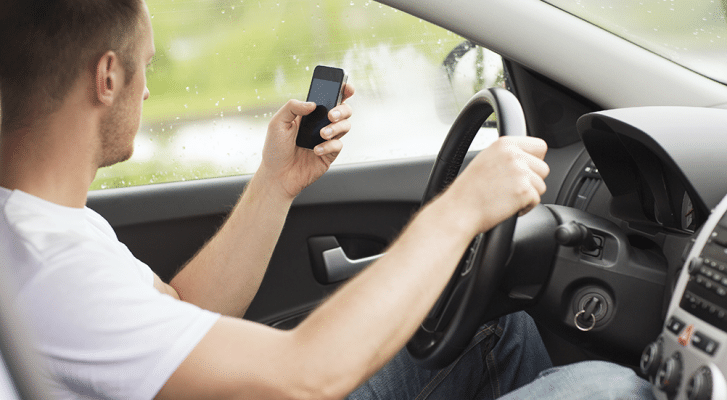
Distracted Driving in Indianapolis – Part 1 of 3 – What is Distracted Driving?

Distracted driving continues to be a huge problem in Indianapolis and throughout the country. Drivers continue to multitask behind the wheel instead of focusing their attention solely on the task of driving. Our Indianapolis distracted driving accident attorneys discuss the definition of distracted driving in the first blog of a three-blog series covering distracted driving for Distracted Driving Awareness Month.
What is the Definition of Distracted Driving?
Any activity other than driving when you are operating a motor vehicle is a distraction. Some motorists refer to their choice of doing other things while they are driving as multitasking. However, driving is not the time for multitasking. Your full focus should be on the road ahead so that you can take actions to avoid accidents when necessary. Your focus also helps decrease the chance that you will cause a distracted driving accident.
Common examples of distracted driving include:
- Talking on a cell phone, hands-free and handheld cell phones
- Texting while driving
- Drinking and eating
- Putting on makeup, grooming, or changing clothes
- Reaching for objects
- Taking care of pets and children
- Looking at objects outside of the vehicle
- Interacting with other passengers
- Watching videos or making videos
- Using social media accounts and posting online
- Adjusting the vehicle’s controls
- Daydreaming
- Reading and writing
What Happens When You Are Distracted While Driving?
When a driver engages in another activity while driving, the driver may take his eyes off the road. The visual distraction decreases a driver’s reaction time once the driver recognizes a situation or road hazard. Taking your eyes off the road also makes you a dangerous hazard for other drivers, pedestrians, and bicyclists.
Some distractions cause a driver to take his hands off the steering wheel. Manual distractions also slow reaction time and make it easier to drift into other lanes or lose control of the vehicle.
Lastly, cognitive distractions result from taking your mind off of the task of driving. When you are not paying attention to the road ahead, it is easier to miss traffic slowing down, a child running into the road, or road debris. You may be looking at the road ahead, but if your mind is wandering, you could cause an accident. Some drivers report driving for miles and not remembering much about the drive. Likely, the driver had his mind on something other than driving.
The worst distractions involve all three types of distractions, such as texting while driving, eating, or putting on makeup. When all three types of distractions are involved, the likelihood of a distracted driving accident increases.
Avoiding Distractions While Driving
AAA Exchange provides 10 tips for avoiding distracted driving. Most of the tips are straightforward, such as finishing grooming and dressing at home and put all electronic devices aside while driving. Avoiding distractions while driving is a choice. If a driver chooses to ignore the evidence regarding the dangers of distracted driving, the driver can and should be held liable if he causes a distracted driving accident.
Indianapolis Distracted Driving Accident Attorneys Help You Hold a Distracted Driver Responsible
The legal team of Poynter & Bucheri works with accident victims to file insurance claims seeking compensation for injuries sustained in a distracted driving accident. We fight for your right to recover a fair settlement. If the parties refuse to negotiate a reasonable settlement, we are prepared to file a car accident lawsuit to pursue the driver who caused your accident.
Call 1-800-265-9881 or (317) 780-8000 to request your free consultation with an Indianapolis distracted driving accident lawyer.
